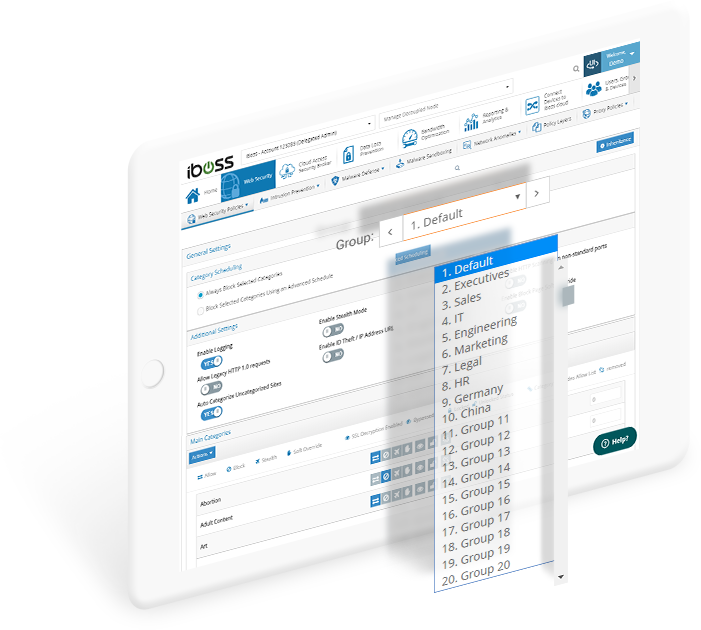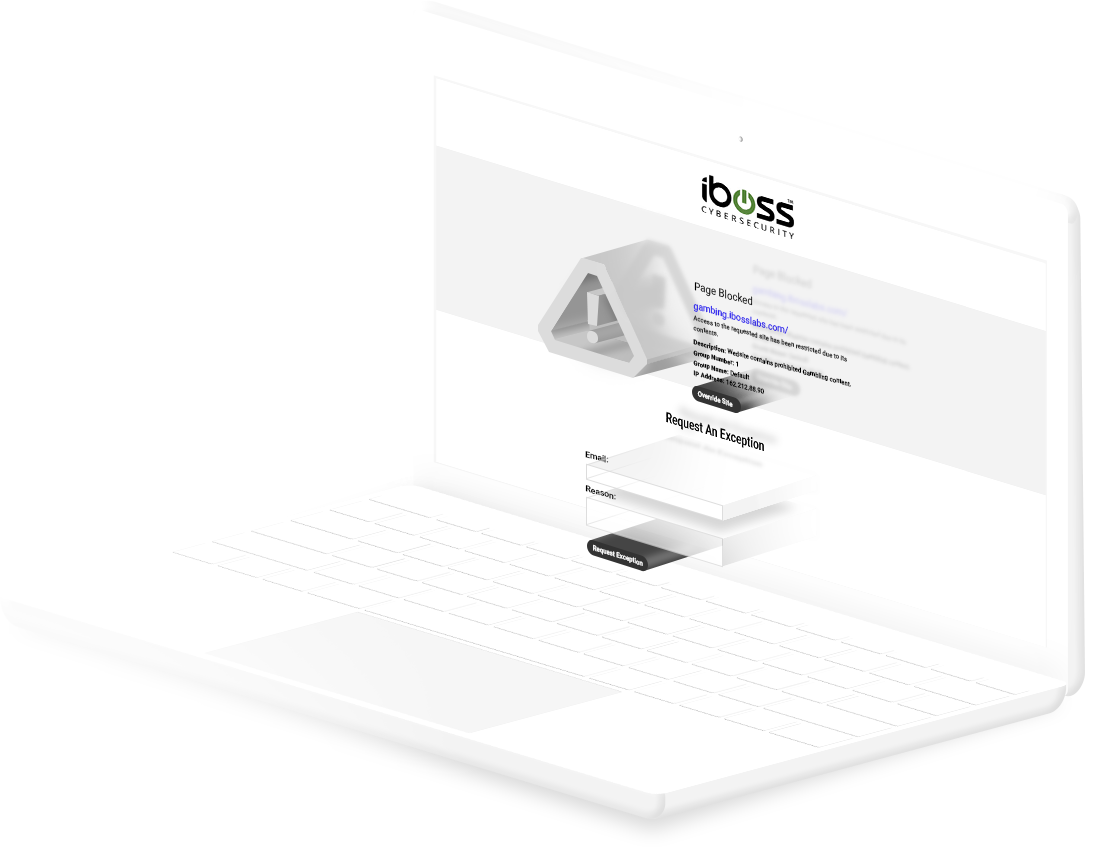
User and group based policies provide the flexibility to create differentiated role-based Internet access allowing users to be productive and secure
Each department within an organization typically needs varying levels of Internet access depending what the job entails. The ability for IT administrators to create tailored web access roles to enable productivity while ensuring compliance and security is critical. A single one size fits all policy is not only overly prohibitive but also reduces productivity. The iboss Cloud Platform allows for the creation of varying policies depending on which user is accessing the Internet. This ensures the user can accomplish what they are trying to achieve online while remaining secure from malware and other threats on the Internet.
These policies are automatically assigned to users so they are seamlessly assigned ensuring low friction and a great user experience. In addition, the policies can be tied to Active Directory Security Groups or Organizational Units to simplify the assignment of policies to users within the organization. In addition, SAML can be used to tie users to specific policies based on user or group membership.
Assign policies to Active Directory Organizational Units or Security Groups
Policies can be tied to Active Directory, eDirectory, or any LDAP enabled database to quickly and easily assign policies to users within the organization. Differentiated policies allow users to access the content they need online while remaining secure. Policies can be linked to Active Directory Organizational Units (OUs) or Security Groups to quickly map the existing organizational structure to secure Internet access policies.
Use SAML to assign users and groups to specific policies
SAML can be used to link policies to specific users or groups. The use of SAML eliminates the need to open firewalls to allow access to Active Directory server instances. The iboss Secure Cloud Gateway will automatically extract the information it needs from SAML to assign group policies to users wherever they roam.
Speed Bump and Soft Block Overrides allow users to override restrictions
When users are restricted access to online content, administrators have the option to allow users to perform self-service block page overrides. Users can use the speed bump feature to easily gain access to content or administrators can require the user enter credentials to gain access to restricted content. This reduces IT support calls and provides users warnings to restricted content without being overly prohibitive.





